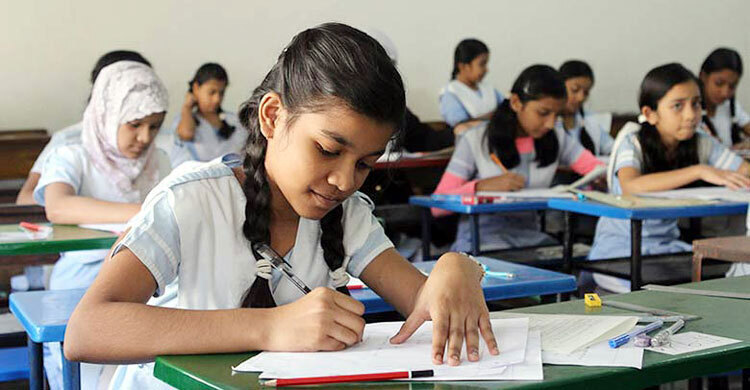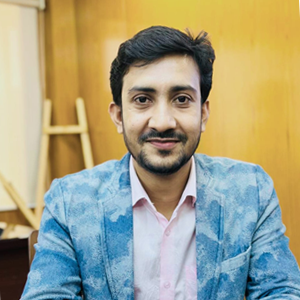Students struggle to memorise lessons, call for 'easier' exams

Mifta Jannat, a class VIII student at Viqarunnisa Noon School and College, is finding herself in a difficult position. For the past two years, she has studied under the hands-on, project-based learning model of the new curriculum. But after the sudden cancellation of this curriculum by the interim government, she is now forced to revert to the old system—one that requires heavy memorisation. With her annual exams approaching in December, Mifta, like many others, is struggling to adapt to the sudden change.
“I’ve never seen her cry over schoolwork before,” said Mifta’s mother, Anjuman Ara. “But now she’s sitting for hours, unable to memorise even five lines. It’s causing a lot of stress.”
This story isn’t unique to Mifta. Across Bangladesh, thousands of primary and secondary students are feeling the pressure of returning to a memorisation-heavy exam system, especially after years of hands-on, experiential learning. The National Curriculum and Textbook Board (NCTB) has issued a syllabus for the upcoming exams, but many students are struggling to adjust, having lost the habit of rote learning and writing lengthy answers.
A challenging transition
The abrupt shift has left many students and parents worried. With just two months left until the annual exams, parents fear that the workload is too much for students who have grown accustomed to the new curriculum's focus on practical, non-exam-based learning.
Tahera Akter Rupa, whose child also attends Viqarunnisa Noon School and College, expressed her concern. “There’s so little time left. The syllabus is too extensive for students who haven’t had to memorise in almost two years.”
Aurangzeb Salim, a parent at Motijheel Government Girls High School, echoed similar concerns. “How can they be expected to cover so much material in such little time? The curriculum was one way, but now the exams are based on another method. It’s confusing and unfair.”
Teachers offer some reassurance
Teachers are aware of the struggles their students are facing. Shamsuzzaman Molla, a math teacher at Motijheel Ideal School and College, acknowledged that the curriculum change has been challenging. "Due to pressure from parents, the new curriculum was canceled. We understand the difficulty students are facing, and we plan to conduct the exams in a simple manner."
The NCTB chairman, Professor AKM Riazul Hasan, also tried to allay concerns. "We’ve given a syllabus, but we’ve also directed schools to administer relatively easy tests. We don’t expect there to be too much pressure on the students," he told Jago News.
A history of change and uncertainty
This is not the first time Bangladesh’s education system has faced abrupt changes. Since the country’s independence, the curriculum has been altered seven times, with the last significant revision in 2012. While each change aimed to modernise the system, it often created challenges for students, teachers, and parents alike. The latest 2021 curriculum, introduced by the Awami League government, sought to eliminate the traditional exam-based model in favor of hands-on learning, but it faced widespread criticism and eventually led to its cancellation.
After the interim government took over on August 5, it reinstated the old curriculum. Though this move has provided relief for many parents, who were unhappy with the new methods, it has also created short-term challenges for students like Mifta, who are struggling to adapt to yet another change.
Calls for reform
While the immediate concern is how students will fare in the upcoming exams, there are broader questions about the future of Bangladesh’s education system. Parents and experts alike are calling for a more stable and long-term approach to curriculum development.
Marjan Akhter, a parent who has been vocally protesting the previous government’s education policies, believes that constant changes are doing more harm than good. “These repeated changes put unnecessary pressure on students. We need a curriculum that is consistent, sustainable, and goal-oriented.”
Dr SM Hafizur Rahman, a professor at Dhaka University’s Institute of Education and Research, agrees. “The curriculum should be relevant for at least 5-10 years and consider the future job market. Unfortunately, we’ve failed to implement a visionary framework, which has led to repeated failures.”
He also pointed to a gap between expectations and reality. “We always start with high hopes, but fail in implementation due to lack of resources and inadequate teacher training. Reducing this gap is key to achieving success.”
For now, students like Mifta will continue to navigate the challenges of this latest educational upheaval, hoping for some flexibility in their upcoming exams. But the broader question remains: how can Bangladesh create an education system that fosters both learning and stability for its future generations?

